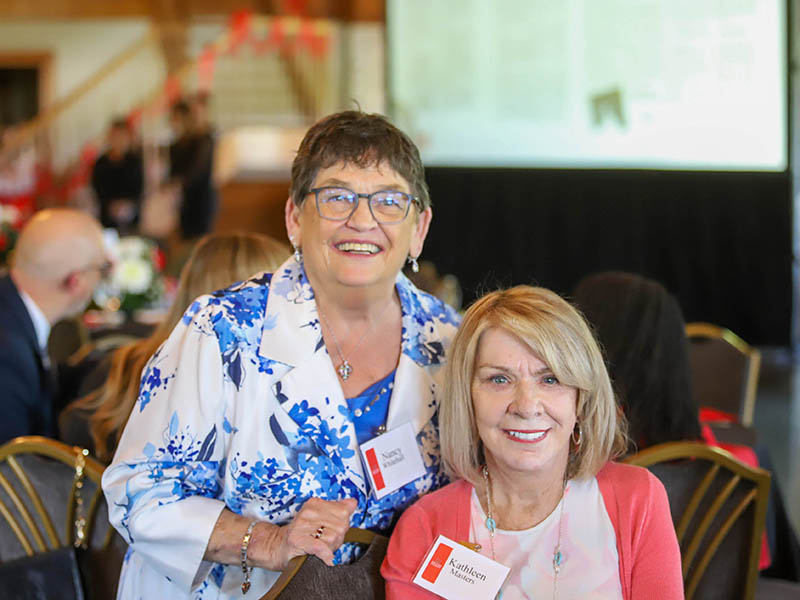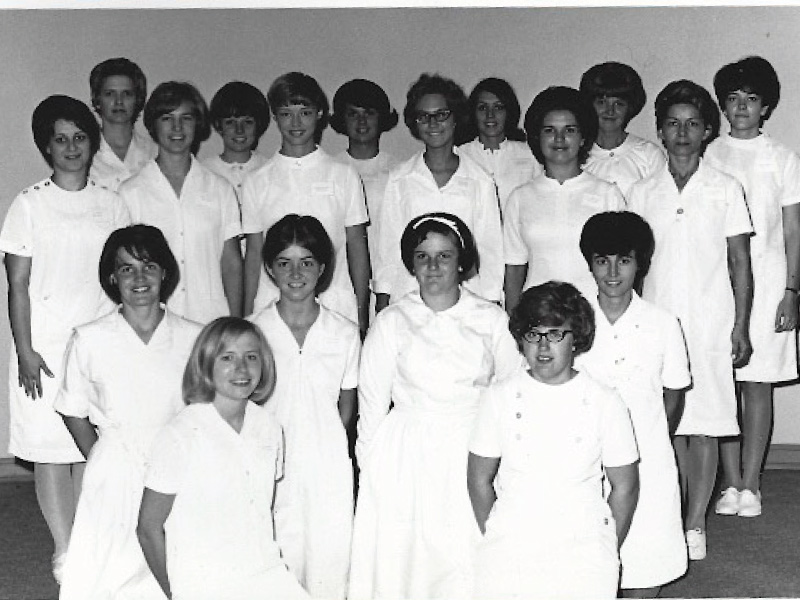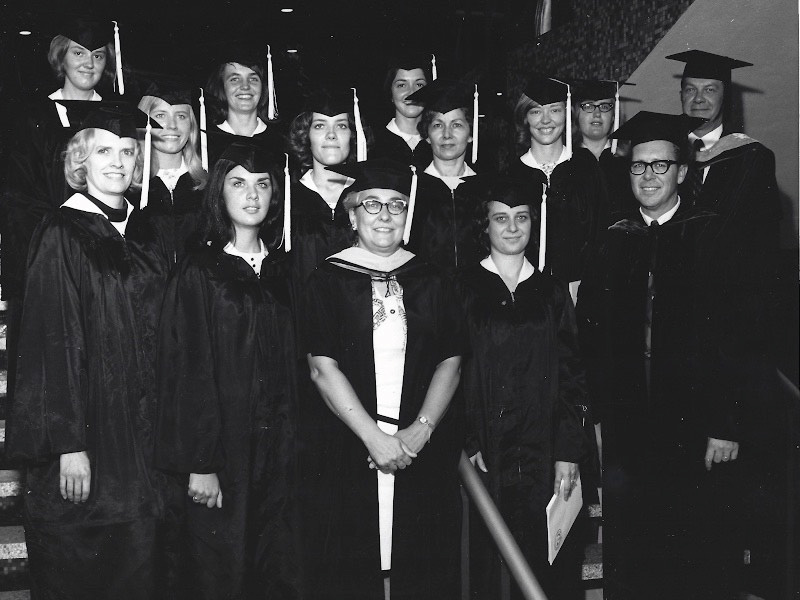Nursing Department grows as profession becoming a key to solving healthcare staffing shortage nationwide
From just 18 students in 1968 to nearly 600 today, Nursing has undergone a transformation

Nursing Department grows as profession becoming a key to solving healthcare staffing shortage nationwide
When Nancy Whitehill graduated from Miami University’s Nursing Department in 1970, she was part of a wave of change in nursing that has evolved the profession from basic bedside care to the highest levels of healthcare leadership and innovation. As part of Miami’s first graduating class of associate degree nurses, Whitehill and her 17 classmates were at the leading edge of this new age.
Miami University launched its Nursing Department in 1968 on the Hamilton campus as the healthcare profession began to move away from training nurses in hospitals, as had been the practice for decades, and stressed a university education due to the increasing complexity of care.
The Nursing Department celebrated 55 years of excellence in nursing education at a special evening in May when the department also celebrated its first graduates in the new Master of Science in Nursing program, launched in 2022.
“When I became a nurse, I never wanted to be anything else,” said Whitehill, who is now retired and lives in San Diego after a 30-plus year career. She served as president of her class during her time at Miami. “Our skills and knowledge have evolved as we seek to become the profession the American Nurses Association (ANA) envisioned in 1964,” she added, in reference to an ANA report at the time that recommended a baccalaureate education for all nurses.
Today, Miami’s Nursing Department encompasses roughly 600 students on both the Hamilton and Oxford campuses. Bachelor’s degrees are now the starting point at Miami, with associate degrees in nursing no longer offered. Advanced degrees are becoming more commonplace. Miami’s first cohort of Master of Science in Nursing graduates received their degrees May 18 at spring commencement.
The nursing profession has undergone a rapid transformation over the past 50 years as healthcare has become increasingly high-tech and research offers fast-moving innovations in treatment and care. In 1970, nurses were largely seen as hospital assistants who worked under the close direction of doctors. Today, nurses are highly regarded healthcare professionals in their own right and can pursue a range of professional specialties across the healthcare spectrum.



"I Am Miami Nursing" Wall
In celebrating 55 years of Nursing at Miami the department is working with Miami alum Brent Billingsley (‘13) to create the "I Am Miami Nursing" Wall. The wall will be a mosaic featuring 100 moments in Miami Nursing made up of photos submitted by alumni, capturing their history through photos that share their laughter, smiles, tears, and gratitude.
Donors making a gift of $155 or more to one of the Nursing gift funds will be sent a link to upload their photo.
